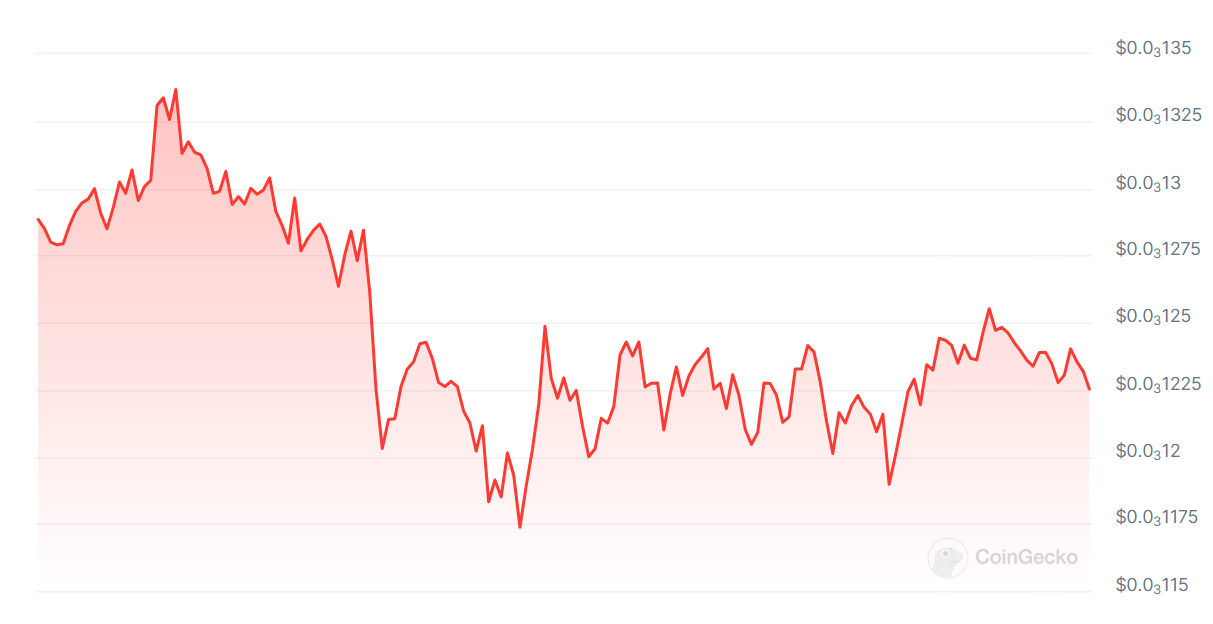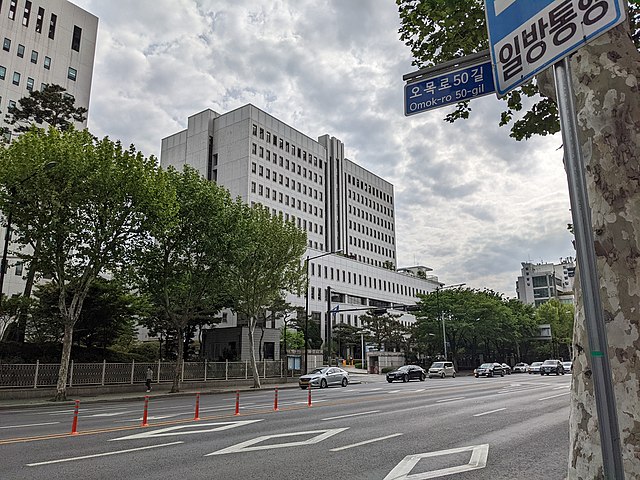‘Is Crypto a Security?’ – Judges Forced to Make Difficult Decisions
The Seoul Southern District Court is handling two of the highest-profile altcoin “price manipulation” cases in South Korean legal history.
The court is now handling various cases relating to the Terra ecosystem crash of May 2022, as well as the art-themed Pica Coin token.
Both cases hinge on prosecution allegations that the coins were knowingly sold as securities.
Currently, South Korean law does not recognize any coin as having security status. However, judges have been pressured to accept precedents from the US.
Washington-based regulators have declared that some coins can be considered securities. They say others have commodity properties.
 LUNC prices over the past seven days. (Source: CoinGecko)
LUNC prices over the past seven days. (Source: CoinGecko)Terraform Labs, the firm behind Terra ecosystem coins like LUNC (formerly LUNA), has based much of its South Korean case around the notion that cryptoassets are not securities.
However, judges at the Seoul Southern District Court “have repeatedly agonized over judgments” on this matter. Newsis wrote:
“‘Is crypto a security?’ Seoul Southern District Court judges ask this question during every trial.”

Judges ‘Agonizing’ Over Difficult Crypto Decisions
A judge from the same court sentenced a former crypto exchange executive to four years in prison on February 15.
The latter was found guilty of securing a low-cap altcoin listing to drive up prices. However, in sentencing, the judge struck an exasperated note, stating:
“It is difficult to clearly recognize the illegality of the act. That is because there are no clear [legal] standards.”
Unnamed legal community experts claimed that South Korea’s crypto market is “expanding.” And, they say, “the number of fraud cases is increasing.”
But, they said, South Korea lacks a “relevant legal framework” to deal with such matters.
In the Pica Coin case, media outlets report that prosecutors have urged the court to consider the token to be a security.
This would allow prosecutors to press charges of price manipulation under the terms of the Capital Markets Act.
A preference for trading altcoins in South Korea is weakening as momentum-chasers go after Bitcoin instead https://t.co/3CPZyiH6IF
— Bloomberg (@business) February 22, 2024
However, Pica Coin-related defense lawyers have complained that “coins are not securities” under national law.
A defense lawyer told the court during a hearing:
“The Pica Coin [police] investigation was illegal. And the resulting prosecution is also illegal. This case was investigated and prosecuted in a country where virtual assets are not recognized as securities.”
Lee Jeong-yeop, the CEO of the Lawjipsa legal firm and the President of the Blockchain Law Society, said:
“It seems that [trials] will become protracted when courts have to examine possible [violations of] the Capital Markets Act. […] Crypto-related crime has caused an enormous amount of damage. But if judges decide that the Capital Markets Act does not apply in these cases, it will be problematic.”
If the latter is true, Lee said, defendants should be “acquitted” or “receive reduced sentences.”
An unnamed former Supreme Court Justice said:
“In a criminal trial, there should be no room for expanded or analogical interpretation. So it would be difficult for a court to rule virtual assets have securities properties here. But in civil cases, […] it does seem possible.”
Kim Hyun-kwon, a lawyer at LKB & Partners, opined that “legal experts still have different opinions, so it is impossible to say definitively what is right or wrong.”
Kim concluded that in the absence of legislative change, a clearer picture would need to be constructed based on individual courts’ rulings on the matter.
Those wishing to find an answer to the question “Is crypto a security?” in South Korea appear to be left with no other choice but to wait.
💥 K-pop Stars Choi Si-won, Cho Hyun-young Deny South Korean ‘Scam Coin’ Involvement
K-pop stars Choi Si-won and Cho Hyun-young have denied allegations that they were involved in promoting so-called South Korean “scam coins.”#CryptoNews #SouthKoreahttps://t.co/XZoy8Se6pJ
— Cryptonews.com (@cryptonews) February 16, 2024
Allegations of crypto fraud and crypto-related crime have dominated the headlines in South Korea this year.
Police have reported a rise in crypto-related scams, bogus OTC deals, and crypto-powered drug trafficking.
 cryptonews.com
cryptonews.com
